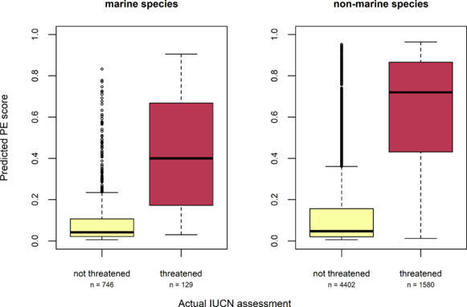The IUCN Red List of Threatened Species is essential for practical and theoretical efforts to protect biodiversity. However, species classified as “Data Deficient” (DD) regularly mislead practitioners due to their uncertain extinction risk. Here we present machine learning-derived probabilities of being threatened by extinction for 7699 DD species, comprising 17% of the entire IUCN spatial datasets. Our predictions suggest that DD species as a group may in fact be more threatened than data-sufficient species. We found that 85% of DD amphibians are likely to be threatened by extinction, as well as more than half of DD species in many other taxonomic groups, such as mammals and reptiles.
Research and publish the best content.
Get Started for FREE
Sign up with Facebook Sign up with X
I don't have a Facebook or a X account
Already have an account: Login
Revue de presse et du net par le Pôle de partage des connaissances S&T de l'Office français de la biodiversité
Curated by
DocBiodiv
 Your new post is loading... Your new post is loading...
 Your new post is loading... Your new post is loading...
|
|











Borgelt, J., Dorber, M., Høiberg, M.A. et al. More than half of data deficient species predicted to be threatened by extinction. Commun Biol 5, 679 (2022). https://doi.org/10.1038/s42003-022-03638-9
via @Shoal_Org @david_tickner @CommsBio